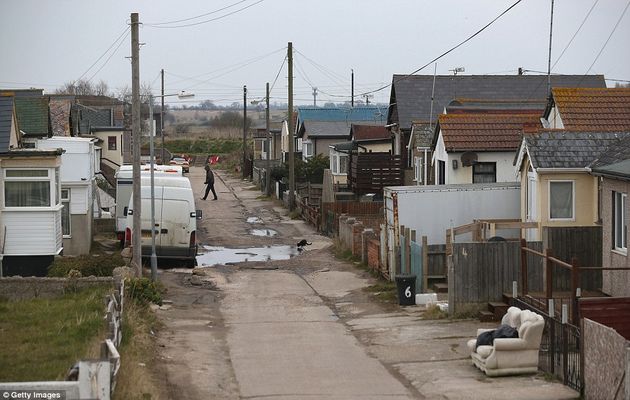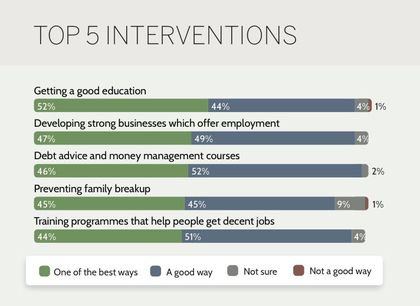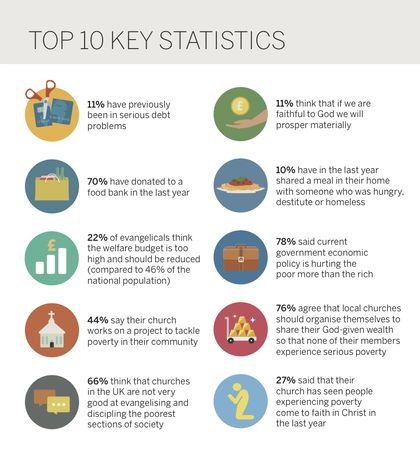A report of the UK Evangelical Alliance shows that 78 per cent of Evangelicals believe last government's policies are harmful for the poor.
 East t Jaywick, Essex, the poorest place in England. / Getty images
East t Jaywick, Essex, the poorest place in England. / Getty images
British evangelicals have issued a stinging critique of the last government's economic policy in new research from the Evangelical Alliance.
According to the “Good news for the poor”? Report, nearly 4 out of 5 evangelicals in UK believed the last government's economic policy hurt the poor more than the rich.
Additionally, two thirds said welfare reform policies had a negative impact on the sick and disabled. Only 15 per cent of evangelicals said the Coalition's economic policy worked well to produce a more prosperous future for all.
“GOD IS ON THE SIDE OF THE POOR”
The study shows that the high level of concern about poverty among evangelicals is motivated by their belief that God is on the side of the poor. Actually, some of key findings of the report include:
Regarding the welfare budget, the opinions among evangelicals are very different:
 The best ways to get out of poverty. / EAUK
The best ways to get out of poverty. / EAUKTACKLING POVERTY
Evangelical Christians back a range of measures to tackle poverty, and government redistribution of wealth only just squeezes into the top 10, with a fairer and more generous benefit system even lower.
Getting a good education is the best route out of poverty for British evangelicals, along with developing strong businesses which provide employment; debt advice and money management courses, and preventing family break-up.
Dr Dave Landrum, director of advocacy at the Evangelical Alliance United Kingdom, confirmed the commitment of Christians in this issue: "Evangelicals are active in tackling poverty and they're disappointed at the record of the government over the past five years.”
“As ever, we're committed to working with charities and local government to help those in our neediest neighbourhoods”, he added.
On an individual level, evangelical Christians are highly active in tackling poverty with seven out of 10 having donated to a food bank in the last year.
Nearly four in 10 are also volunteering for a local Christian project tackling poverty. However, only one in 10 have shared a meal in their home with someone who was hungry, destitute or homeless.
 A summary of the report / EAUK
A summary of the report / EAUK
THE RESPONSIBILITY OF THE GOVERNMENT
Landrum emphasized the importance of the government in the fight against poverty: “The government not only needs to value and support the work of churches, it also has a responsibility to make sure that poverty decreases and doesn't increase in the next five years."
Founder and international director of Christians Against Poverty (CAP) John Kirkby said: "Just this week, we have had 31 representatives from churches across the UK with us to be trained to open, grow and maintain CAP debt centres.”
He also invited politicians to join and work together: “We know poverty is a huge concern for the Church and we'd warmly welcome any MP –new or re-elected - who wants to learn more about our work and about the people we help."
Gordon Gill, director of marketing and ministry at Prospects, remembered the needs of handicapped people: "Government estimates suggest there are 1.5 million people living in the UK with learning disabilities; put another way, 1.5 million families affected by learning disability.”
That means a financial hardship for many families where “parents, out of necessity, leave full-time employment to take on a lifetime caring role”, Gill explained.
“For these families, the support they desperately need is more than financial. Last year 252 volunteers from 88 local churches attended Prospects training events to open support groups for families affected by learning disability", he concluded.
You can read EAUK's full report here.

Las opiniones vertidas por nuestros colaboradores se realizan a nivel personal, pudiendo coincidir o no con la postura de la dirección de Protestante Digital.
Si quieres comentar o